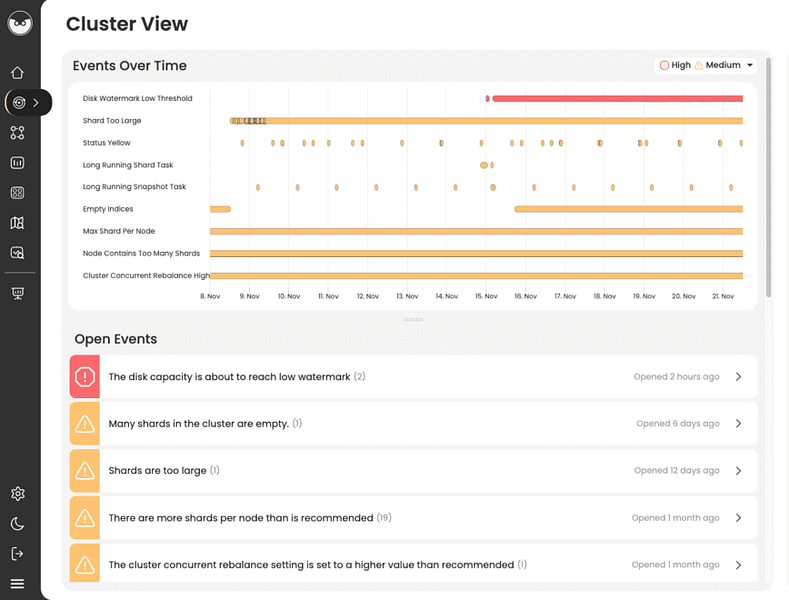Opster Team
Last updated: Mar 8, 2023
| 2 min readIn addition to reading this guide, we recommend you run the Elasticsearch Health Check-Up. It will detect issues and improve your Elasticsearch performance by analyzing your shard sizes, threadpools, memory, snapshots, disk watermarks and more.The Elasticsearch Check-Up is free and requires no installation.
To manage all aspects of your OpenSearch operation, you can use Opster’s Management Console (OMC). The OMC makes it easy to orchestrate and manage OpenSearch in any environment. Using the OMC you can deploy multiple clusters, configure node roles, scale cluster resources, manage certificates and more – all from a single interface, for free. Check it out here.
Quick links:
Overview
A filter in OpenSearch is all about applying some conditions inside the query that are used to narrow down the matching result set.
What it is used for?
When a query is executed, OpenSearch by default calculates the relevance score of the matching documents. But in some conditions it does not require scores to be calculated, for instance if a document falls in the range of two given timestamps. For all these Yes/No criteria, a filter clause is used.
Examples
Return all the results of a given index that falls between a date range:
GET my_index/_search
{
"query": {
"bool": {
"filter": {
"range": {
"created_at": {
"gte": "2020-01-01",
"lte": "2020-01-10"
}
}
}
}
}
}Notes
- Queries are used to find out how relevant a document is to a particular query by calculating a score for each document, whereas filters are used to match certain criteria and are cacheable to enable faster execution.
- Filters do not contribute to scoring and thus are faster to execute.
Common problems
- The most common problem with filters is incorrect use inside the query. If filters are not used correctly, query performance can be significantly affected. So filters must be used wherever there is scope of not calculating the score.
- Another problem often arises when using date range filters, if “now” is used to represent the current time. It has to be noted that “now” is continuously changing the timestamp and thus OpenSearch cannot use caching of the response since the data set will keep changing.
Find & fix Elasticsearch problems
Opster AutoOps diagnoses & fixes issues in Elasticsearch based on analyzing hundreds of metrics.
Fix Your Cluster IssuesConnect in under 2 minutes

Jose Rafaelly
Head of System Engineering at Everymundo





